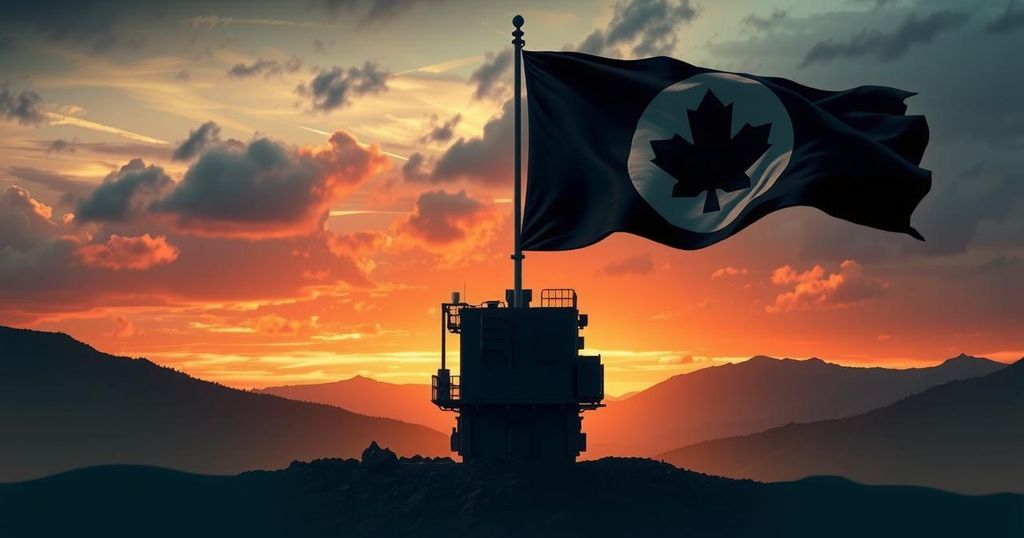DR Congo President Felix Tshisekedi announced a “vigorous” military response to M23 rebels amid escalating violence in the east, including the capture of Goma. International inaction has been criticized by Tshisekedi, while humanitarian conditions deteriorate rapidly. Despite calls for talks with Rwanda’s Kagame, Tshisekedi remains hesitant, reflecting deep-seated tensions related to the conflict’s historical roots and ongoing struggles over mineral-rich territories.
On Wednesday, President Felix Tshisekedi of the Democratic Republic of Congo (DRC) declared that DRC troops were mounting a “vigorous” military response against the advance of M23 rebels, who are reportedly backed by Rwanda. This statement came amid an escalating security crisis in the eastern part of the country, where M23 has captured significant territories, including the key city of Goma. Tshisekedi condemned the international community’s lack of action, describing it as an “affront,” and emphasized the need for a coordinated response against the insurgents.
According to local sources, the M23 fighters captured two districts in South Kivu, extending their control after apparently routing the Congolese army from the provincial capital of North Kivu. The move has sparked concerns of a potential humanitarian crisis due to ongoing clashes that have reportedly led to over a hundred deaths and thousands of wounded. Residents of Goma are facing shortages of food and medicine, adding to the urgent need for international involvement.
Despite calls for crisis talks, Tshisekedi declined to engage directly with Rwandan President Paul Kagame at a regional summit aimed at seeking peaceful solutions. The East African Community urged the DRC government to dialogue with M23 and other armed factions, although Tshisekedi has resisted such overtures to date. Angola calls for an urgent meeting between Congolese and Rwandan leaders following the increase in hostilities.
The humanitarian situation continues to deteriorate, with reports indicating half a million people have been displaced this month alone due to the violence. M23 fighters appear to have taken over Goma, where visibility of Congolese military has diminished significantly, prompting widespread looting and chaos in the city. Protesters in the capital Kinshasa have expressed their frustrations towards the international community’s perceived inaction, leading to unrest and confrontations with embassies.
The ongoing conflict, attributed partly to Rwanda’s alleged involvement, has raised concerns over the security of the broader region. Rwanda’s envoy stated that the M23 advance will persist, potentially threatening further escalation as tensions remain high. Allegations against Rwanda suggest motives rooted in accessing the rich mineral resources of eastern DRC, a claim strongly denied by Kigali officials.
In summary, President Tshisekedi’s administration is grappling with significant military advances by the M23 group supported by Rwanda, amidst increasing humanitarian concerns, international pressure for resolution, and regional instability. The outlook remains troubling as the conflict develops, highlighting essential issues of sovereignty, international responsibility, and humanitarian urgency.
The ongoing conflict in the eastern Democratic Republic of Congo has deep historical roots, stemming partly from the Rwandan genocide in 1994 that transposed armed groups across borders. The mineral-rich eastern region is plagued with violence, harboring numerous armed factions like the M23, which has recently intensified its offensives, markedly affecting the local populace and the national military’s capability to respond. The situation has garnered international attention with mounting calls for intervention and diplomatic solutions to negotiate peace.
In conclusion, the DRC faces a precarious situation as M23 rebels continue to expand their territory, exacerbating an already critical humanitarian crisis. President Tshisekedi’s administration is under increasing pressure from within and internationally to effectively respond to these threats while addressing the dire conditions faced by the civilian population. The conflict underscores the complexities of regional dynamics, resource control, and the urgent need for a collaborative response to restore stability and security.
Original Source: www.france24.com






